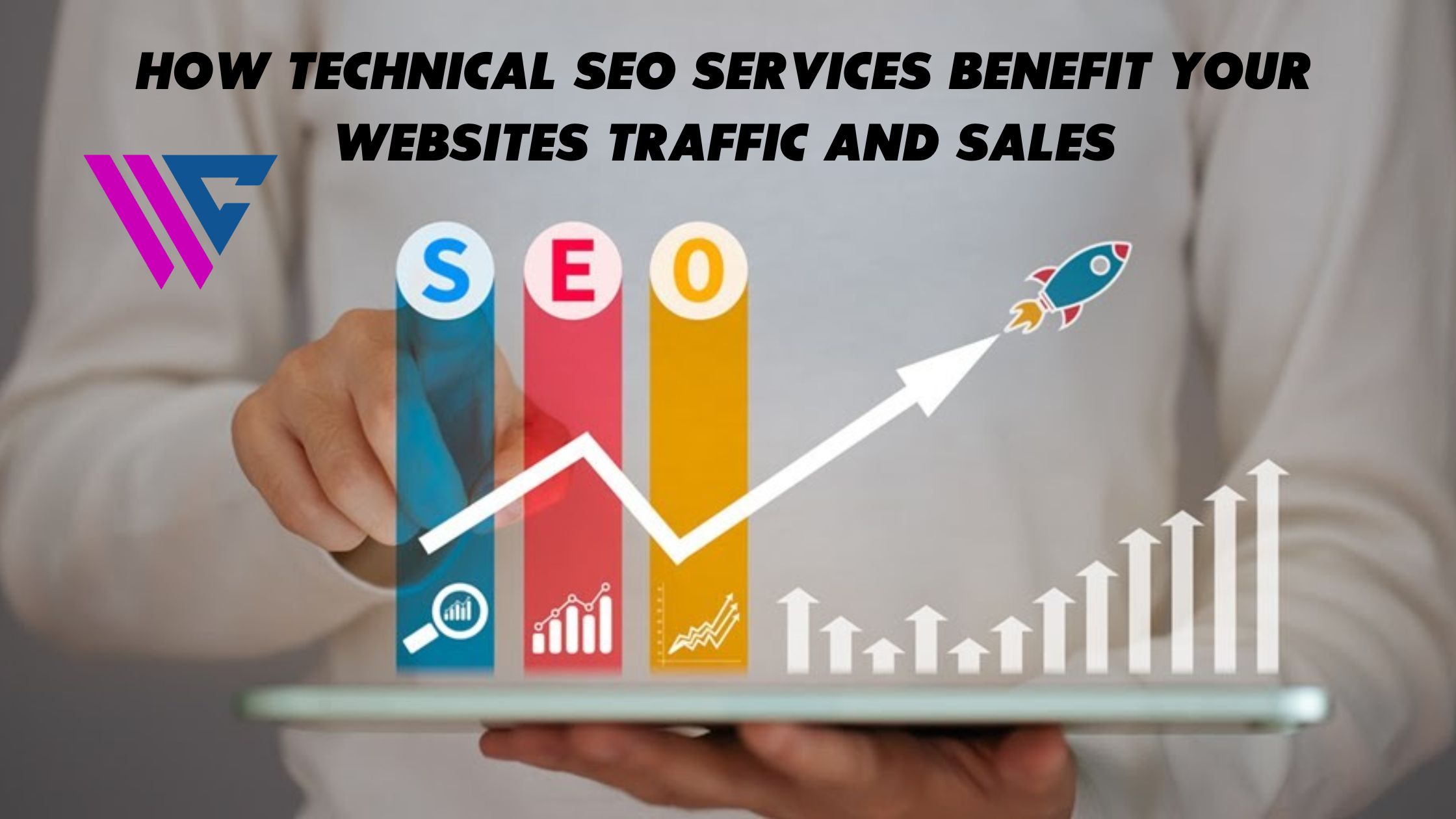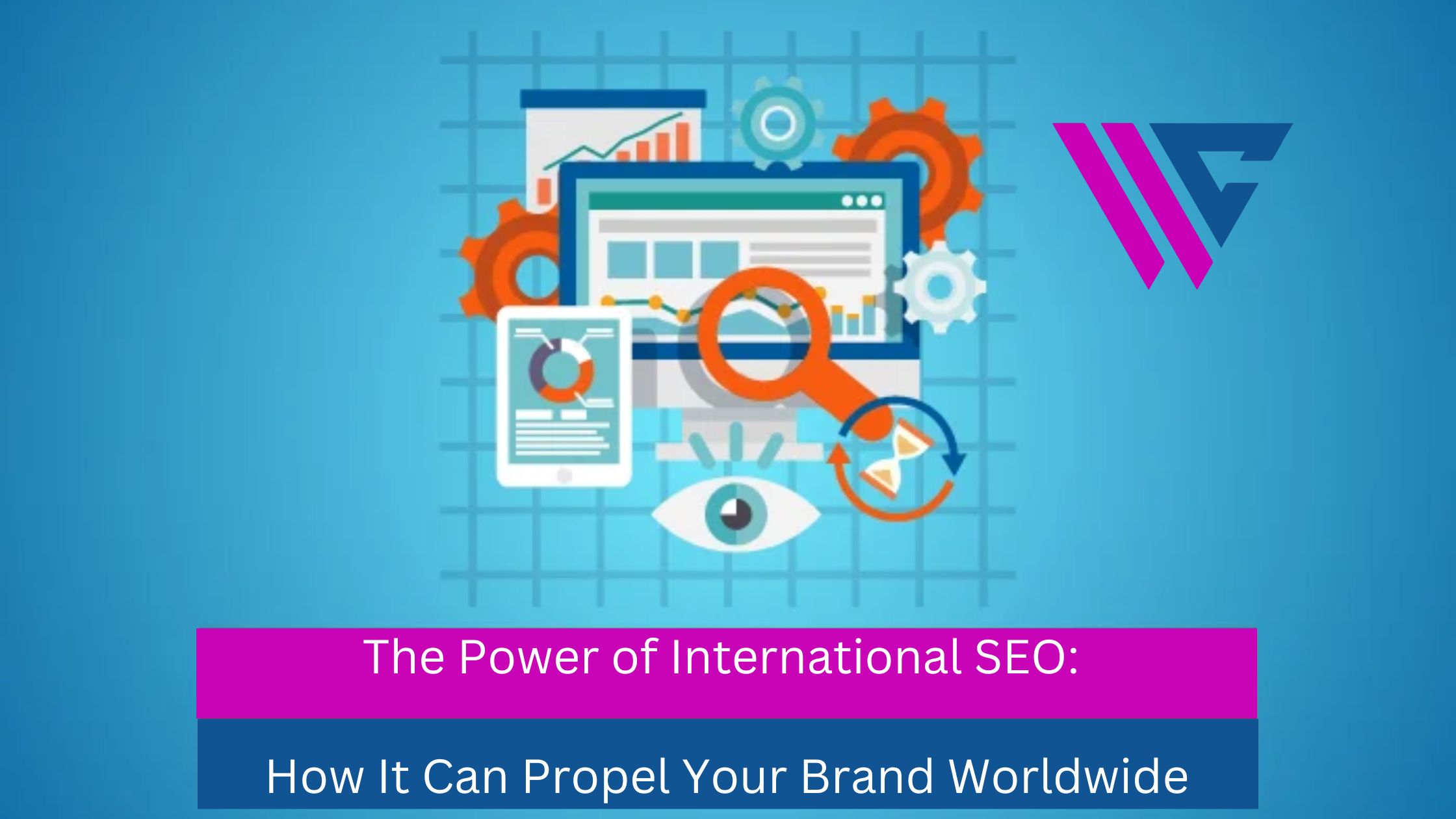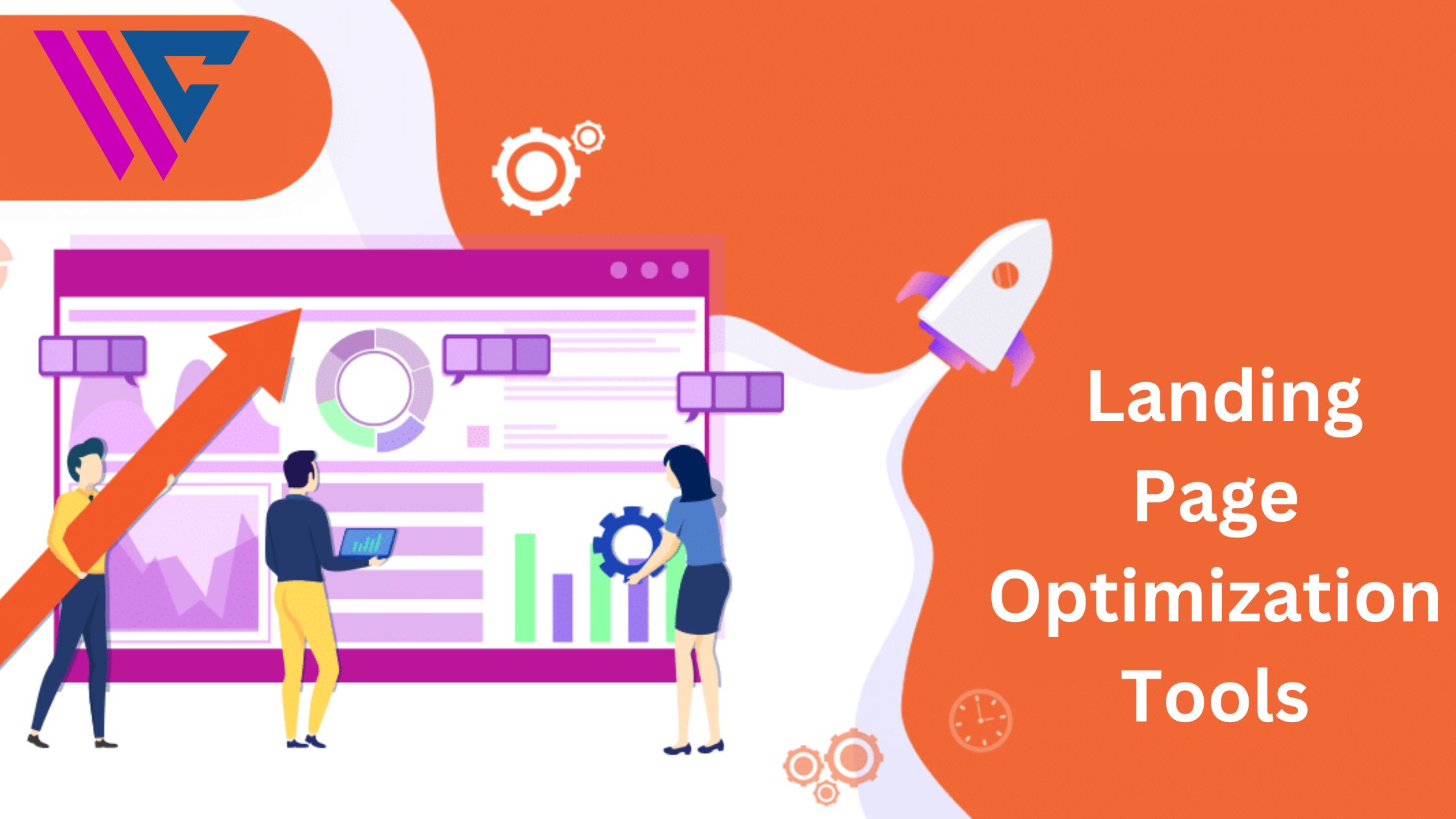Standing out among competitors in the ever-evolving digital landscape requires more than a beautiful website and compelling content. Enterprise SEO emerges as a powerful strategy for large businesses aiming to capture significant market share.
This comprehensive search engine optimization (SEO) approach addresses large-scale websites’ unique challenges and opportunities, helping companies dominate the digital market.
What is Enterprise SEO?
Enterprise SEO is a special type of search engine optimization designed for large companies. These businesses have big, complicated websites with lots of content. Unlike regular SEO, which might focus on a single website with fewer pages, Enterprise SEO handles websites with thousands of pages. It looks at every part of a website to ensure it works well for search engines and users.
Why is Enterprise SEO Important?
Being visible online is crucial. Enterprise SEO helps big companies improve their search engine rankings, making it easier for people to find them. This leads to more organic traffic (visitors who find the site through search engines) and more potential customers.
Big websites often have unique challenges. They might have to manage multiple locations, deal with older website issues, or handle several subdomains (different website sections). Enterprise SEO helps manage these challenges, keeping the site healthy and performing well.
With effective Enterprise SEO, a business can:
- Enhance its visibility across a wide range of search terms.
- Ensure that all pages are indexed and rank well on search engines.
- Drive more organic traffic, which can lead to increased revenue.
- Stay competitive in a crowded digital marketplace.
What is the Difference Between Enterprise SEO and Other SEO?
The main difference is the scale and complexity. Regular SEO might focus on optimizing a website with a few hundred pages. On the other hand, Enterprise SEO deals with websites with tens of thousands of pages. This requires a more strategic approach to ensure all pages are properly optimized.
Enterprise SEO also involves coordinating efforts across different departments and regions, sometimes even countries. This level of coordination needs advanced tools and strategies, as well as a deep understanding of both technical SEO and content optimization.
Here are some key differences:
- Scale: Enterprise SEO handles thousands or millions of pages, whereas traditional SEO might manage hundreds.
- Complexity: It requires more sophisticated tools and strategies to manage the vast amount of content and data.
- Resources: Enterprise SEO often involves dedicated teams and larger budgets.
- Integration: It requires integration across various departments like marketing, IT, and sales to ensure a cohesive strategy.
Key Challenges in Enterprise SEO for Websites
1) Ensuring Crawlability and Indexability
For large websites, making sure search engines can easily navigate and index all pages is crucial. Crawlability means search engines can find and visit all pages on a site. Indexability means these pages are stored in the search engine’s database and can appear in search results.
Large websites can have problems like broken links, duplicate content, and incorrect settings that make it hard for search engines to do their job. Regular technical checks and using tools like XML sitemaps can help make sure all important pages get indexed and ranked.
2) Addressing Legacy Site Issues
Big websites often have been around for a long time, which can lead to legacy issues. These are outdated parts of the website that don’t work well with modern technologies and SEO practices. Legacy issues can slow down a site and hurt search engine rankings.
Fixing these problems involves a detailed site audit to find outdated elements and then updating or removing them. This can be a big job, but it’s necessary for keeping the website competitive and functioning well.
3) Managing Multiple Locations
Many large businesses have multiple locations, each with its web pages. Optimizing these pages for local search is key to attracting relevant visitors. This includes creating location-specific content, optimizing Google My Business listings, and managing local citations.
A good structure for location pages helps ensure each location is easily found by search engines and provides a good user experience for visitors looking for local information.
4) Handling Multiple Sites and Subdomains
Big companies often manage several websites and subdomains, each serving different purposes or markets. Coordinating SEO across these sites can be challenging. Each site needs its SEO plan, but branding and messaging should stay consistent.
Subdomains can be tricky because search engines might treat them as separate from the main site. This means each subdomain needs its SEO strategy. Effective management involves clear planning, regular monitoring, and using advanced SEO tools to track performance and spot issues.
5) Overcoming the Limitations of Old SEO Fixes
SEO is always changing. Techniques that worked a few years ago might not work today. Old SEO fixes like keyword stuffing, excessive link exchanges, and low-quality content can hurt a website’s performance under today’s search engine rules.
Updating these outdated practices means using modern SEO techniques. Focus on creating high-quality content, improving user experience, and using ethical link-building strategies. Keeping up with the latest SEO trends and algorithm changes is crucial for staying competitive. You can see this SEO checklist to get updates for your SEO fixes.
6) Identifying and Fixing Issues
Continuous monitoring and quick fixes are vital parts of Enterprise SEO. With so many pages, problems like broken links, slow loading times, and duplicate content can happen often. Finding these issues requires good tools and regular checks.
Fixing these problems quickly is important for keeping the site healthy and ranking well. This might mean technical adjustments, content updates, or site structure changes. A proactive approach ensures the website stays optimized and competitive.
What to Expect From Enterprise SEO Services
Building on the importance of Enterprise SEO for large businesses, let’s dive into what you can expect when you enlist professional Enterprise SEO services. These services are designed to tackle the complexities of optimizing large-scale websites, ensuring your business achieves and maintains a dominant position in search engine results.
1. Competitor Analysis
Enterprise SEO services start with a comprehensive competitor analysis. This involves examining your competitors’ websites to understand their strengths and weaknesses. By analyzing what your competitors are doing right (and wrong), SEO experts can develop strategies to help your site perform better.
This includes identifying keywords your competitors rank for, the quality of their content, their backlink profiles, and overall site performance. This insight is crucial for crafting a competitive SEO strategy tailored to your business.
2. SEO Audits and Implementation
An SEO audit is a detailed examination of your website’s current SEO status. This audit looks at technical aspects like site speed, mobile-friendliness, and crawlability, as well as on-page elements such as meta tags, header tags, and content quality. The audit helps identify any issues that might be holding your site back.
Once the audit is complete, SEO experts will implement the necessary changes. This might involve fixing broken links, optimizing page titles and descriptions, improving site structure, and ensuring the site is easily navigable for both users and search engines. The goal is to enhance the overall health of your website, making it more attractive to search engines.
3. Customized Strategy Development
Every business is unique, and so are its SEO needs. Enterprise SEO services include developing a customized strategy tailored to your specific goals and challenges. This strategy takes into account your industry, target audience, business objectives, and the insights gained from the competitor analysis and SEO audit.
A customized approach ensures that the SEO efforts align with your business’s unique needs and maximize your chances of success.
4. Content Optimization and Creation
Content is a critical component of SEO. Enterprise SEO services focus on optimizing existing content and creating new, high-quality content that resonates with your audience. This involves using targeted keywords naturally within the content, ensuring the content is informative and engaging, and structuring it to be easily readable.
SEO experts will also create content strategies that include blog posts, articles, infographics, videos, and other formats that can attract and engage your target audience. High-quality content not only improves your search engine rankings but also helps establish your brand as an authority in your industry.
5. Link Building and Digital PR
Building a strong backlink profile is essential for improving your website’s authority and search engine rankings. Enterprise SEO services include link-building strategies that focus on acquiring high-quality backlinks from reputable sites. This involves outreach to relevant websites, creating valuable content that others want to link to, and engaging in digital PR activities to increase your online visibility.
Digital PR can also involve securing coverage in online publications, getting mentions from influencers, and leveraging social media to build your brand’s presence. Effective link-building and digital PR efforts help boost your site’s credibility and drive more organic traffic.
6. Local SEO Optimization (if applicable)
For businesses with multiple locations or a local presence, local SEO optimization is crucial. This includes optimizing your website for local search queries, ensuring your Google My Business listings are accurate and up-to-date, and managing local citations. Local SEO helps improve your visibility in local search results, making it easier for customers in your area to find you.
SEO experts will also ensure that your location pages are well-optimized, providing relevant information such as address, phone number, hours of operation, and directions. This enhances the user experience and increases the chances of converting local searchers into customers.
7. Analytics and Performance Monitoring
Enterprise SEO services involve continuous monitoring and analysis of your website’s performance. Using tools like Google Analytics, SEO experts track key metrics such as organic traffic, bounce rates, conversion rates, and keyword rankings. This data provides valuable insights into how well your SEO strategy is working and where improvements can be made.
Regular performance reports help you understand the impact of SEO efforts on your business and make informed decisions about future strategies. This ongoing analysis ensures that your SEO strategy remains effective and aligned with your business goals.
8. Continuous Optimization and Adaptation
The digital landscape is constantly changing, and so are search engine algorithms. Enterprise SEO services include continuous optimization and adaptation to keep your website performing at its best. This involves staying up-to-date with the latest SEO trends and best practices, making regular adjustments to your strategy, and implementing new techniques as needed.
SEO experts will continuously test different approaches, analyze results, and refine your strategy to ensure sustained success. This proactive approach helps your business stay ahead of the competition and maintain high search engine rankings.
9. Dedicated Account Management and Support
When you invest in Enterprise SEO services, you can expect dedicated account management and support. This means you’ll have a team of SEO professionals who are focused on your business and its unique needs. They’ll provide regular updates, answer your questions, and offer expert advice to help you achieve your goals.
Having a dedicated account manager ensures that your SEO efforts are coordinated and aligned with your overall business strategy. It also means you have a point of contact who understands your business and can provide personalized support whenever you need it.
Investing in professional Enterprise SEO services ensures that your website is always optimized, competitive, and ready to capture a larger share of the digital market. With dedicated support and a customized strategy, your business can thrive in the ever-changing digital landscape.
Top Enterprise SEO Tools You Need to Know
To effectively implement Enterprise SEO, having the right tools is essential. These tools help streamline the process, providing valuable insights and automating many tasks. Here are some top Enterprise SEO tools you need to know:
Moz

Moz is a comprehensive SEO tool that offers features designed to improve your website’s search engine performance. It includes tools for keyword research, link building, site audits, and rank tracking.
Moz’s Keyword Explorer helps you discover and prioritize the best keywords to target, while its Link Explorer allows you to analyze your backlink profile and identify link-building opportunities.
For example, a large e-commerce site can use Moz to audit thousands of product pages, ensuring each one is optimized for relevant keywords and free of technical issues.
Here are some main features of Moz:
- Keyword Explorer: This helps you find and prioritize the best keywords to target, ensuring your content is optimized for the right search terms.
- Link Explorer: Analyzes your backlink profile and identifies opportunities for link building, which can help improve your site’s authority and rankings.
- Site Audits: Conducts comprehensive site audits to identify technical issues that might be affecting your search engine performance.
- Rank Tracking: Monitors your search engine rankings over time, helping you track the success of your SEO efforts.
Ahrefs

Ahrefs is another powerful tool known for its extensive backlink analysis capabilities. It provides detailed insights into your competitors’ backlink profiles, helping you identify potential link-building opportunities. Ahrefs also offers keyword research, site auditing, and rank-tracking features.
Its Content Explorer tool can help you find the most popular content in your industry, providing ideas for creating high-quality, shareable content.
For instance, a multinational corporation can use Ahrefs to monitor its various subdomains and ensure each performs well in its respective market.
Here are some main features of Ahrefs:
- Backlink Analysis: Examines your site’s backlink profile and helps you understand the sources of your backlinks and their quality.
- Keyword Research: Identifies valuable keywords to target and provides data on keyword difficulty and search volume.
- Site Audit: Performs in-depth audits to uncover SEO issues and suggests ways to fix them.
- Content Explorer: Find the most popular content in your industry, which can inspire high-quality, shareable content for your site.
Semrush

Semrush is an all-in-one SEO tool that offers a wide range of features for keyword research, competitive analysis, site auditing, and content marketing. One of its standout features is the Domain Overview, which provides a comprehensive view of your website’s performance, including organic search traffic, backlinks, and paid search performance.
Semrush also includes tools for tracking your search engine rankings and analyzing your competitors’ strategies. For example, a global brand can use Semrush to track its rankings across different regions and adjust its SEO strategy accordingly.
Here are some main features of Semrush:
- Domain Overview: Provides a snapshot of your website’s performance, including organic search traffic, backlinks, and paid search performance.
- Keyword Magic Tool: Helps discover new keyword opportunities and build a list of target keywords.
- Site Audit: Identifies technical issues and provides recommendations for improvement.
- Position Tracking: Monitors your rankings for specific keywords and tracks your performance over time.
Google Analytics

Google Analytics is a must-have tool for any SEO strategy. It provides detailed insights into your website’s traffic, user behavior, and conversion rates. By analyzing this data, you can identify which pages are performing well and which ones need improvement.
Google Analytics also allows you to set up goals and track your progress over time. For instance, a large retailer can use Google Analytics to track the performance of its online store, identifying which products are most popular and optimizing its marketing efforts to drive more sales.
Here are some main features of Google Analytics:
- Traffic Analysis: Understand where your visitors are coming from, how they interact with your site, and what content they find most engaging.
- User Behavior: Track how users navigate your site, including which pages they visit and how long they stay. It gives you demographic data.
- Conversion Tracking: Set up goals to measure conversions, whether they are sales, sign-ups, or other important actions.
- Performance Reports: Generate detailed reports to monitor your site’s performance and identify areas for improvement.
HubSpot’s Website Grader

HubSpot’s Website Grader is a free tool that provides a quick assessment of your website’s performance. It evaluates your site’s SEO, mobile-friendliness, security, and overall user experience, providing actionable recommendations for improvement.
While it might not be as comprehensive as some other tools, it’s a great starting point for identifying key areas that need attention. For example, a startup with limited resources can use HubSpot’s Website Grader to get a snapshot of its site’s health and prioritize the most critical SEO tasks.
Here are some main features of HubSpot’s Website Grader:
- SEO Evaluation: Assesses how well your site is optimized for search engines and suggests ways to improve.
- Mobile Friendliness: Check if your site is optimized for mobile devices, which is crucial for user experience and search rankings.
- Security Assessment: Ensures your site is secure, which is important for protecting user data and maintaining trust.
- Overall Performance: Provides an overall score and detailed recommendations to enhance your site’s performance.
Boost your business visibility with Webcazador’s top-notch Enterprise SEO solutions!
Our comprehensive approach ensures that your large-scale website ranks higher in search engine results and attracts the right audience. By using advanced SEO techniques tailored to your business’s specific needs, Webcazador helps you stay ahead of the competition.
From technical SEO and content optimization to link building and performance monitoring, our solutions are designed to drive organic traffic and boost your online presence. With Webcazador, you’ll see sustained growth and success in your digital marketing efforts.
FAQs
What is Local SEO vs. Enterprise SEO?
Local SEO focuses on optimizing a website to attract traffic from specific geographic areas, making it ideal for businesses with physical locations. It involves optimizing Google My Business profiles and creating location-specific content. For example, a restaurant chain uses local SEO to ensure each location appears in local searches.
Enterprise SEO, on the other hand, is for large companies with complex websites. It covers technical SEO, content optimization, link building, and global strategies, managing the SEO needs of multiple departments and locations.
Why Hire an Enterprise SEO Agency?
Hiring an Enterprise SEO agency offers several benefits. Agencies bring expertise and experience in handling large-scale SEO projects and staying updated with the latest trends and algorithm changes. They provide comprehensive strategies tailored to your business goals, access to premium SEO tools, and the ability to scale services as your business grows. This saves your team time and resources, allowing them to focus on core business activities.
How Do You Succeed in Enterprise SEO?
Success in Enterprise SEO involves several practices. Conduct regular site audits to identify and fix technical issues. Focus on strategic keyword research and high-quality content creation to meet audience needs. Develop a strong link-building strategy and, if applicable, optimize for local SEO to attract traffic to multiple locations. Continuously monitor site performance and adjust strategies based on insights. Ensure collaboration across marketing, IT, and content teams to achieve common SEO goals.





